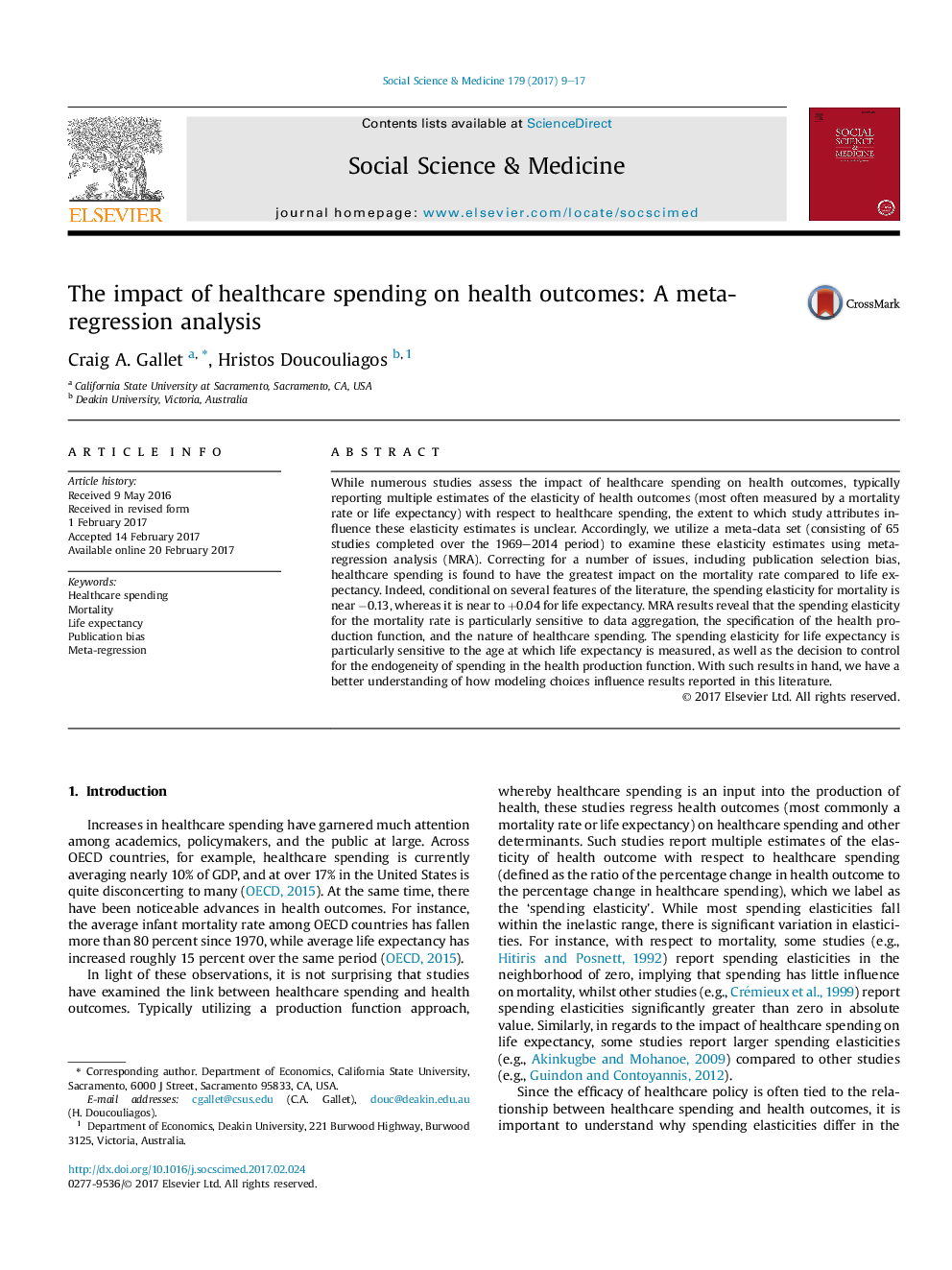ترجمه فارسی عنوان مقاله
تأثیر هزینه های مراقبت های بهداشتی بر نتایج سلامتی: یک تحلیل متا رگرسیون
عنوان انگلیسی
The impact of healthcare spending on health outcomes: A meta-regression analysis
| کد مقاله | سال انتشار | تعداد صفحات مقاله انگلیسی |
|---|---|---|
| 110752 | 2017 | 9 صفحه PDF |
منبع

Publisher : Elsevier - Science Direct (الزویر - ساینس دایرکت)
Journal : Social Science & Medicine, Volume 179, April 2017, Pages 9-17
ترجمه کلمات کلیدی
هزینه های مراقبت های بهداشتی، مرگ و میر امید به زندگی، تعصب انتشار، ماتریس رگرسیون،
کلمات کلیدی انگلیسی
Healthcare spending; Mortality; Life expectancy; Publication bias; Meta-regression;

